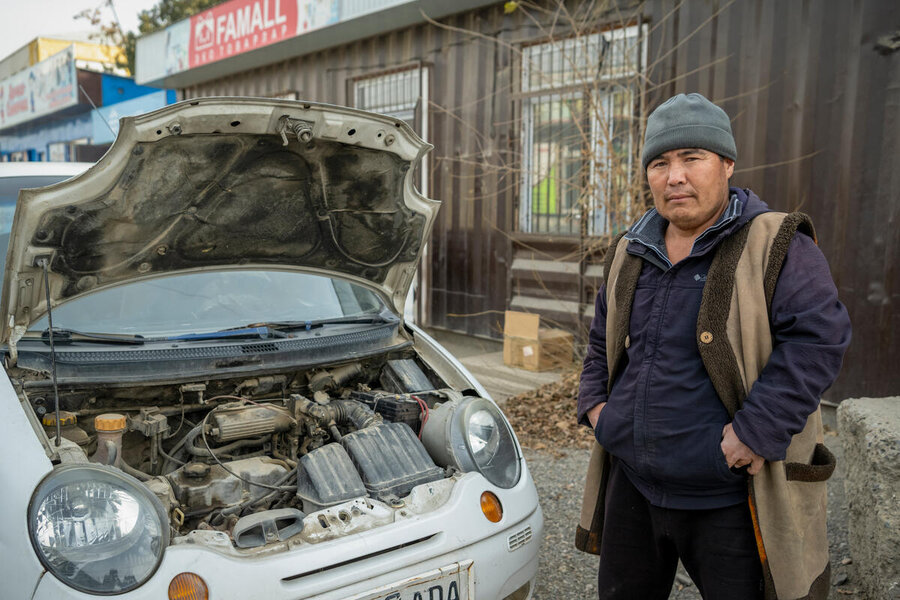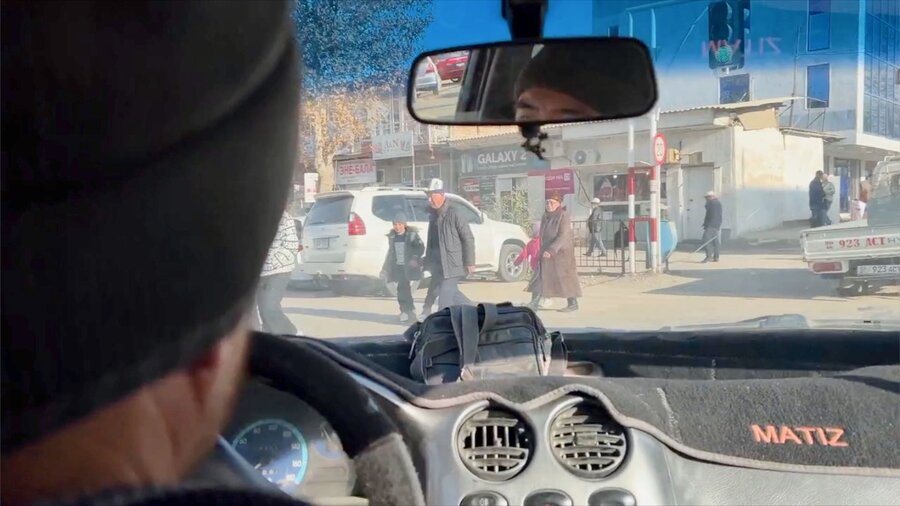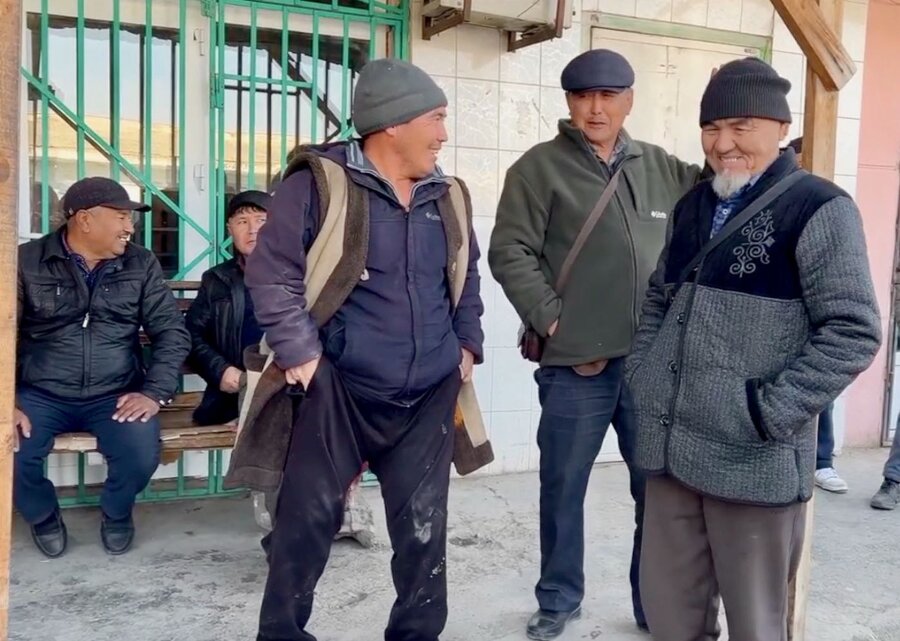Kyrgyzstan: Cash grants drive cabbie living with a disability towards food security

As he pulls out of a dusty alley and onto the main busy road of the Kyrgyz town of Kadamjay, Niazbek Sarybai looks both ways before exclaiming: “I’ve always loved cars and driving them. When I’m at the wheel of my taxi I can meet all sorts of people. That’s why I like my job.”
In the most southern part of the Kyrgyz Republic, close to the Old Silk Road, life for this father of five changed course three years ago - after he received US$1,200 from the World Food Programme (WFP) to ditch his old car and buy a new one to run a taxi service.
'I can offer my children the education they deserve'
Sarybai also learned how to run a small business and manage the money he was getting from his job. When his daily earnings reached US$11, he started saving for car maintenance and repairs.
That's all thanks to a 2021 pilot scheme WFP helped to launch with the Kyrgyz Government, offering cash grants to 100 families living below the poverty line to engage in economic activities. Besides launching taxi businesses, other sustainable employment sources include livestock breeding, welding, bakeries, or sewing services.
The joint project was so successful that it was rapidly extended to 3,000 families the following year and to 10,000 in 2023. Thanks to the programme, which is now entirely government-funded, the lives of 20,000 families will be improved this year.

Finding ways to make ends meet is a daily feat in this landlocked Central Asian country, especially for people like Sarybai, whose disability – a malformation of the hands – saw some employers close doors on job opportunities. “I used to do a bit of farming here and there – or rent a car to drive customers around,” he says, even though the latter would cost him half his earnings.
Today, Sarybai no longer needs state welfare, improving his standing within his community. Every other day, he drives clients to the bustling southwestern city of Kyzyl-Kiya.
During the Soviet era, this town of around 50,000 people was the epicentre of the country’s mining industry, attracting workers from neighbouring Uzbekistan and Tajikistan. Today, the town’s industrial golden age is history, and unemployment rates are soaring, pushing thousands of people into poverty. One in three live on just over US$1 per day.
Price rises make it difficult for families to eat. Countrywide, over 10 percent of the population is now acutely food insecure.
For Sarybai, WFP’s support is a stepping stone into a new and better life. In all weathers, he joins his fellow taxi drivers at a large square close to Kadamjay's main market as they wait in line for the next ride. The system is well-oiled. To avoid treading on each other’s toes, the drivers take turns covering different parts of the district, making sure there is enough work for them all.

“Niazbek is very happy now; he really is a changed man,” says Sarybai's colleague and childhood friend Jakshybai Rysbaev.
Sarybai's biggest reward: “I can offer my children the education they deserve,” he says. And he has no problems putting food on the table.
“When I finish my work, I return home with food,” he says. “If I am asked to buy meat, I buy meat. If I am asked to buy butter, I buy butter. It’s great to be able to get the food you need and then return home.”
Sarybai hasn't forgotten the harder days. “When I see people poorer and less lucky than myself walking along the road,” he says, “I give them a ride without making them pay.”


